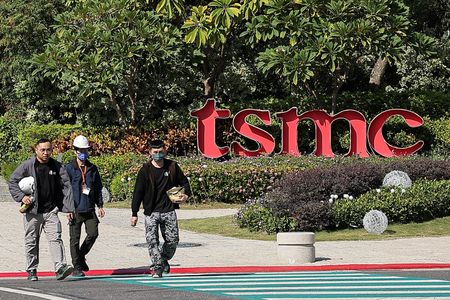By Brenda Goh
SHANGHAI (Reuters) -Alibaba Group Holding Ltd said it will reorganise its international and domestic e-commerce businesses and replace its CFO – changes that come as the tech giant grapples with an onslaught of competition, a slowing economy and a regulatory crackdown.
It will form two new units – international digital commerce and China digital commerce which it said was part of efforts to become more agile and accelerate growth.
The international digital commerce unit will include AliExpress which sells to retail buyers particularly in Europe and South America, its Southeast Asian e-commerce business Lazada and Alibaba.com which is more focused on selling to overseas business customers.
It will be headed by Jiang Fan, who had been in charge of its main Chinese retail marketplaces, and the change is seen in line with Alibaba’s aim to make ‘globalisation’ a key focus area in addition to cloud computing and domestic consumer spending.
Globalisation “helps Alibaba to get new traffic volume externally (and) seek new growth potential while China has been increasing supervision,” said Hong Kong-based Guotai Junan analyst Danny Law.
The China digital commerce unit will include Alibaba’s two main marketplaces, Tmall for established brands and Taobao which welcomes all kinds of merchants. It will be led by Trudy Dai, who has previously overseen a number of Alibaba platforms.
The new structure for domestic e-commerce puts Dai in charge of all China retail marketplaces, including Taocaicai – its community e-commerce service, Taobao Deals as well as Lingshoutong, a retail management platform for mom and pop stores, said 86research.com analyst Xiaoyan Wang.
“This could possibly unlock more synergies via cross-selling and integration of supply chain,” she said.
Alibaba also announced that deputy chief financial officer Toby Xu will succeed Maggie Wu as CFO from April, describing his appointment as part of the company’s leadership succession plan. Xu joined Alibaba from PWC three years ago.
The e-commerce giant’s Hong Kong-listed shares slid 6% in early morning trade, tracking Friday declines made in the United States.
U.S.-listed shares of Chinese firms have tumbled on concerns about stricter regulatory scrutiny at home in the wake of plans by Didi Global Inc to delist from the New York Stock Exchange.
Hit by weaker growth for the economy and fierce competition from a plethora of rivals, Alibaba last month slashed its forecast for annual revenue growth https://www.reuters.com/business/chinas-alibaba-misses-quarterly-revenue-expectations-2021-11-18 to its slowest pace since its 2014 stock market debut. It also saw sales at its banner event, online shopping festival Singles Day, grow at their slowest rate ever https://www.reuters.com/technology/chinas-alibaba-kicks-off-final-hours-singles-day-shopping-event-2021-11-10.
Chinese regulators have also cracked down on the tech and other sectors, particularly on anti-trust issues that have seen Alibaba abandon a policy of requiring merchants to exclusively set up shop on its platforms. The company was fined a record 18 billion yuan ($2.8 billion) in April for abusing its dominant market position.
($1 = 6.3686 Chinese yuan)
(Reporting Brenda Goh in Shanghai and Scott Murdoch in Hong Kong; Additional reporting by Akriti Sharma in Bengaluru; Editing by Edwina Gibbs)









